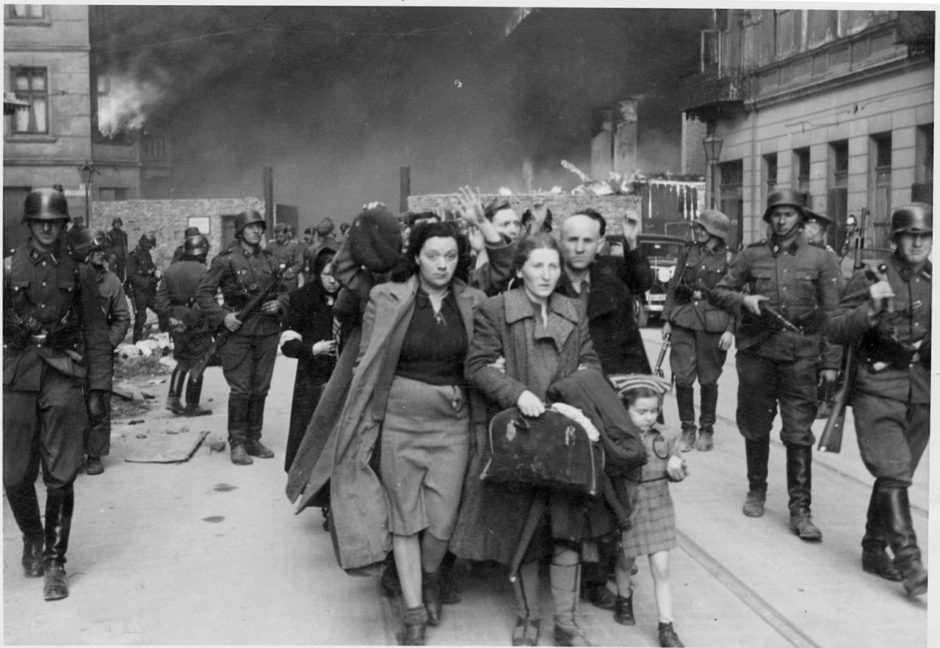An acrimonious debate is raging in Poland and the Jewish Diaspora concerning the attitude of Poles toward Jews during Nazi Germany’s brutal occupation of Poland in World War II.
The debate, which has drawn in the right-wing government of Poland, turns on Polish-Jewish relations, a sensitive subject even in the best of times.
Poland is currently considering adding an amendment to an existing law that would criminalize attempts to implicate Poland, or Poles, in Germany’s genocidal crimes.
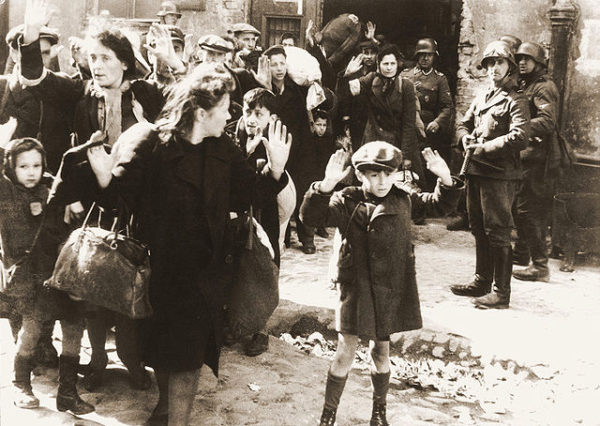
Critics fear it will have a chilling effect on scholars and journalists investigating Polish complicity in the mass murder of Jews in Poland from 1939 to 1945. The vast majority of Poland’s 3.3 million Jews perished during the Holocaust.
The proposed amendment has come under fire from Yad Vashem, the Holocaust research and educational center in Israel. “Criticism of historical investigations is a dangerous step,” Dan Milchman, a senior official at Yad Vashem, said recently. “It damages the image that Poland has gained since the downfall of communism.”
A Polish embassy spokesperson in Ottawa denied accusations that Poland seeks to manipulate scholarship on the Holocaust: “The alleged threat of criminal sanctions for historians studying the issues of the Holocaust in Poland under the Nazi German occupation … is in complete contradiction with the provisions of the draft legislation, which clearly and unequivocally excludes artistic and scientific activities from possible criminalization.”
The spokesperson added, “The idea behind this amendment is to eliminate terms that are contrary to the historical truth, like “Polish death camps,” “Polish extermination camps” or “Polish concentration camps.”
The issue, widely regarded as an acid test of free speech in contemporary Poland, was brought into the open by the Polish American historian and Princeton University professor Jan Gross.
Gross’ best-selling book, Neighbors, published 16 years ago, ignited a storm of controversy over its claim that Poles rather than Germans were to blame for the massacre of hundreds of Jews in the Polish town of Jedwabne in 1941. And in a newspaper article in 2015, Gross wrote, “Consider the Poles, who, deservedly proud of their society’s anti-Nazi resistance, actually killed more Jews than Germans during the war.”
As a result of his assertions, Polish authorities are pondering whether to charge Gross with publicly insulting Poland, a crime punishable by up to three years in prison.
Holocaust scholars, in a recent letter to Polish President Andrzej Duda, condemned the legal maneuvers against Gross and denounced the proposed amendment as an impediment to research on the Holocaust in Poland.
The debate is bound to heat up after Jan Grabowski’s forthcoming book on the role of Poland’s wartime Blue Police in the extermination of Polish Jews force is published.
To no one’s surprise, the fallout from the debate reached the campus of the University of Toronto on November 7, during Holocaust Education Week in the city.
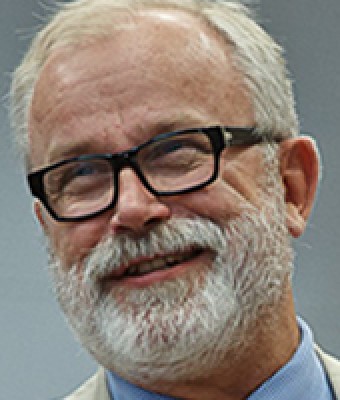
As a panel discussion on Polish assistance to Jews was about to begin, the moderator, Piotr Wrobel, the holder of the Konstanty Reynert Chair of Polish Studies at the University of Toronto, announced that two participants had dropped out due to their objections to Poland’s policies.
The dropouts were Pawel Spiewak, the director of the Jewish Historical Institute in Warsaw, and Natalia Aleksiun of Touro College in New York City.
Grabowski, a University of Ottawa scholar, was not invited.
Wrobel described the panel discussion as strictly non-political and said he was firmly committed to the pursuit of free and unfettered scholarly inquiry.
American historian Samuel Kassow, whose mother and aunt were saved by Poles during the Holocaust, acknowledged the “very fraught” nature of the topic as he launched into his remarks.
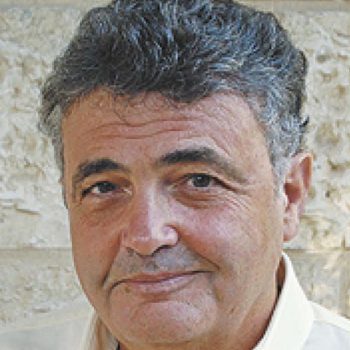
Kassow, the Charles H. Northam Professor of History at Trinity College in Hartford, Connecticut, said that 6,000 or so Polish rescuers already have been honored by Yad Vashem as Righteous Gentiles. Although the Nazis regarded assistance to Jews as a capital crime, thousands of Poles nonetheless risked their lives to extend a helping hand. At least 750 Poles were executed for having helped Jews, he pointed out.
He paid tribute to the Council for Aid to Jews (Zegota), a Polish organization founded at the end of 1942 to assist Jews. But he also mentioned the darker side of the picture — the pogrom in Jedwabne and the general perception in pre-war Poland that Jews were “aliens” rather than genuine Poles.
Calling on Poles to confront the past truthfully, Kassow voiced indignation about “bizarre” comments some Poles have made about the Holocaust.
Recently, Jaroslaw Szarek, the newly-appointed president of the Institute of National Remembrance, told a parliamentary committee that Germans, not Poles, killed Jews in Jedwabne, thereby contradicting the findings of his own institution.
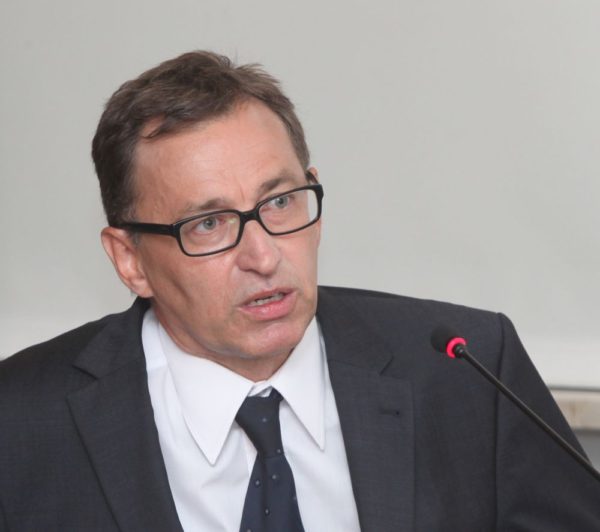
Any attempt to deny the fact that Poles murdered Jews will only tarnish Poland’s international image, Kassow warned.
Polish-Jewish relations during the war were so complex that Jewish historian Emanuel Ringelblum adopted a balanced approach, Kassow suggested. Ringelblum, murdered by the Nazis in 1944, praised Zegota but criticized the Home Army resistance force for not having extended sufficient assistance to Jews.
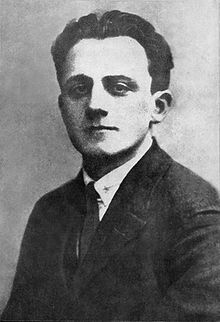
The second panelist, Joshua Zimmerman, the author of The Polish Underground and the Jews: 1939-1945, said the Home Army was one of three organizations instrumental in the formation of Zegota. He cited two major Home Army figures who supported the establishment of Zegota — Henryk Wolinski, the head of its Jewish Affairs Bureau, and General Stefan Rowecki, the Home Army commander from 1940 to 1943.
Zimmerman, a history professor at Yeshiva University in New York City, said that Zegota — a joint Polish-Jewish project — tried to combat antisemitism in Polish society, even though one of its leaders had been an outspoken antisemite before the war. As well, Zegota implored Poles to help Jews and condemned Polish blackmailers in the service of the Germans.
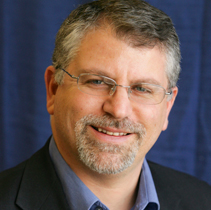
He singled out two Zegota activists — Irene Sendler and Jadwiga Deneko — as exemplary figures in the struggle to save Jews.
Sendler (1910-2008) rescued 2,500 children from the Warsaw ghetto before its destruction in 1943. Deneko (1912-1944) sheltered 13 Jewish children in her home before being murdered by the Nazis.
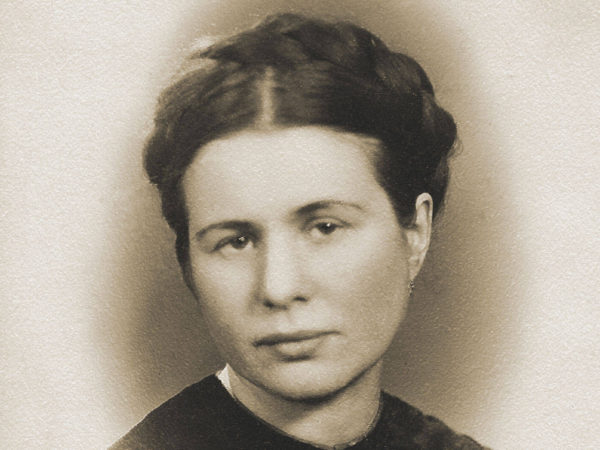
The third and final speaker, Dariusz Stola, a historian and the director of the Polin Museum of the History of Polish Jews in Warsaw, explained Polish perspectives on the Holocaust in Poland.
During the early years of communism in Poland, Poles who had been members of the Communist Party were exclusively singled out as rescuers of Jews, while discussions on the Holocaust were eventually silenced. After 1956, the Holocaust was no longer a taboo subject in Poland.
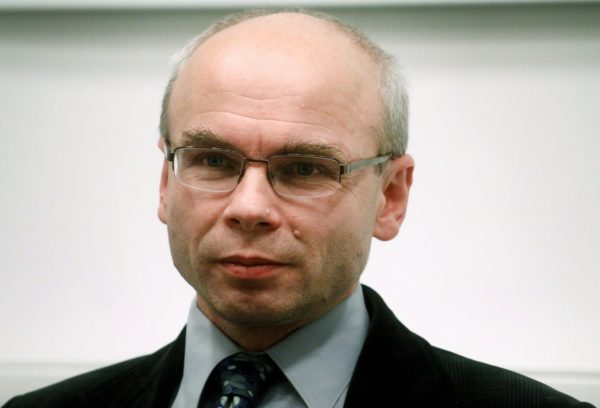
In the wake of the 1967-68 anti-Zionist campaign in Poland, the Polish government encouraged the publication of scholarly and journalistic articles on Polish rescuers as a way of deflecting criticism of its antisemitic policy.
There was a gradual expansion of Holocaust studies from the 1970s onward, he noted.
Yesterday’s event was sponsored by the Polish embassy in Canada, the Polish-Jewish Heritage Foundation of Canada and the Konstanty Reynert Chair of Polish Studies.
